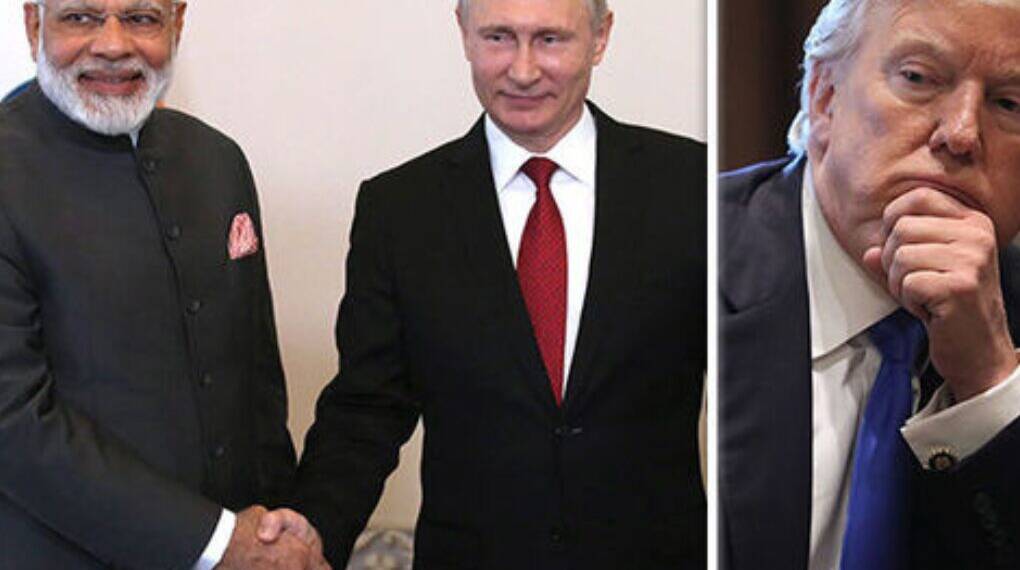Russia has offered India a 5 % discount on crude oil purchases, even as the United States escalates economic pressure on New Delhi over its continued energy partnership with Moscow. The move underscores the geopolitical balancing act India faces between its reliance on Russian energy and its growing economic and strategic relationship with the U.S.
Deputy trade representative of Russia to India, Evgeniy Griva, confirmed that Moscow would continue oil supplies to New Delhi with a negotiated discount, despite tightening Western sanctions on Russia. “There will be a 5 percent discount, subject to negotiation, on Russian crude oil purchases to India,” Griva said. He added that although the numbers fluctuate, Indian imports of Russian crude are expected to remain at “approximately the same level” as in recent months.
Joining him, Russian Deputy Chief of Mission Roman Babushkin reassured that Moscow trusted its long-term partnership with India. “Although this is a challenging situation, we have confidence in our ties. We are confident that India-Russia energy cooperation will continue notwithstanding the external pressure,” he remarked.
Washington’s Tough Stance
The Russian move comes days after the Trump administration slapped 50 % tariffs on Indian exports, targeting sectors such as textiles, leather, and marine products. The White House claims the measure is designed to punish India for continuing oil trade with Moscow, which Washington argues indirectly fuels the Ukraine war.
White House trade adviser Peter Navarro went a step further, accusing India of acting as a financial conduit for Russia. “India acts as a global clearinghouse for Russian oil, converting embargoed crude into high-value exports while giving Moscow the dollars it needs,” Navarro said.
The Trump administration’s tariffs reflect Washington’s broader attempt to impose “secondary pressure” on Russia by penalizing its trade partners. At a press briefing, White House spokeswoman Karoline Leavitt defended the move, saying, “The president has put tremendous public pressure to bring this war to a close. He’s taken actions, sanctions on India, and other actions as well. He’s made himself very clear that he wants to see this war end.”
India’s Pushback
India has strongly condemned the U.S. tariffs, labeling them “unfair, unjustified, and unreasonable.” Prime Minister Narendra Modi asserted that New Delhi would not bow to external economic coercion, stressing that the nation’s energy security is non-negotiable.
Indian officials have consistently defended their purchase of discounted Russian oil, pointing out that such imports are vital for domestic economic stability. With India being the world’s third-largest energy consumer, Russian oil—often sold at cheaper rates than Middle Eastern alternatives—has helped keep domestic fuel prices under control.
In recent years, Russia has emerged as one of India’s top oil suppliers, a development accelerated by Western sanctions on Moscow that forced it to seek new buyers. For New Delhi, the discounted oil not only reduces its import bill but also allows refiners to boost exports of petroleum products, a key source of foreign revenue.
Strategic Autonomy at Stake
The latest tensions highlight India’s policy of strategic autonomy, under which it seeks to balance its relations with multiple global powers without aligning too closely with any single bloc. While India is a member of the U.S.-led Quad grouping, it is also a prominent player in BRICS alongside Russia and China.
Energy cooperation remains the backbone of the India-Russia partnership, complemented by long-standing defense ties. However, Washington’s pressure campaign risks complicating India’s ability to maintain this delicate balance. The new tariffs are likely to hurt Indian exporters, potentially straining relations between the world’s two largest democracies at a time when they have been strengthening cooperation on defense, technology, and the Indo-Pacific.
At the same time, Moscow is working to ensure India remains firmly in its camp by offering financial incentives like the current oil discount. Such moves signal that Russia sees India not merely as a buyer but as a crucial lifeline amid its growing international isolation.
Broader Implications
The situation places New Delhi at the crossroads of a major global power struggle. On one side is the United States, India’s largest trading partner, whose punitive tariffs could significantly impact the Indian economy. On the other is Russia, a time-tested partner providing affordable energy and defense equipment that India cannot easily replace.
The geopolitical stakes are even higher given that China and India are the two largest buyers of Russian oil. Any shift in Indian policy could alter the balance of global energy flows, further affecting Russia’s war financing capacity and Washington’s sanctions strategy.
Ultimately, India’s response to this challenge will reflect not only its immediate economic priorities but also its long-term strategic vision. For now, New Delhi appears determined to hold its ground—continuing to buy Russian oil while seeking ways to mitigate the impact of U.S. tariffs.
As the Ukraine conflict grinds on, India’s choices may well shape not just its own economic trajectory but also the broader contours of global geopolitics.








